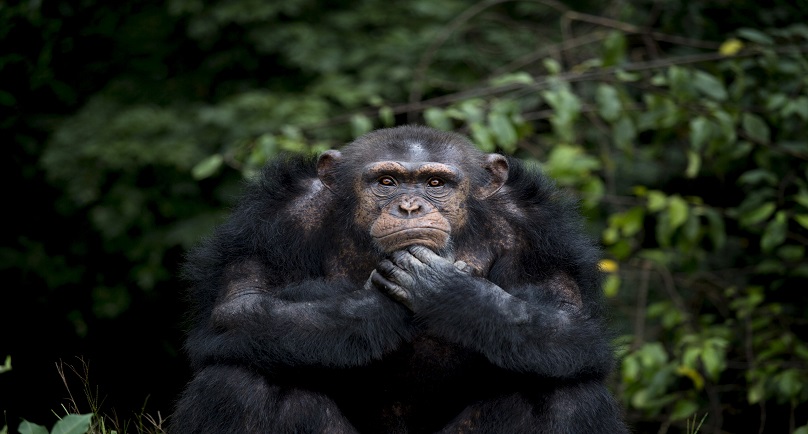Image:A chimpanzee named Samantha waits for her daily feeding at the Liberia Chimpanzee Rescue Project headquarters in Charlesville, Liberia, November 19, 2015. REUTERS/Malin Palm
![]()
By John Palm
MONROVIA (Reuters) – Every morning, U.S. conservationist Jenny Desmond leaves Liberia’s mainland on a boat loaded with fruit and vegetables on a four-hour journey to islands inhabited only by a colony of 66 chimpanzees.
As the boat approaches Island Number One, those closest come running to the shore making sounds of greeting. The animals are healthy but their story is tragic: for years they were used for medical experiments. Then they were left without food.
“The first day we went in the boat they were still fearful and screaming, desperate to be fed. I was brought to tears,” said Desmond. She and her husband Jim Desmond have rescued animals in other countries and moved to Liberia from Kenya.
It’s a story that raises uncomfortable questions about human responsibility for animals once medical experiments are finished: the troubles of the chimpanzees pale beside those facing Liberia, recovering from an Ebola epidemic that killed more than 4,800 people and set back Liberia’s revival after one of West Africa’s most bitter civil wars.
The New York Blood Center (NYBC) said on its website it conducted the tests on the chimps more than a decade ago, with Liberia’s consent, to help develop a low-cost vaccine for Hepatitis B that has since saved millions of lives.
It stopped animal testing in 2004 and its relationship with the Liberian Institute of Biomedical Research (LIBR) ended three years later, it said, adding that Liberia owns the animals.
NYBC said that last January it gave several months notice that its care for the chimps would cease after it spent five years seeking a solution.
Now the Desmonds aim to register an NGO named Liberia Chimpanzee Rescue and build a sanctuary where these and others injured by hunters or kept as pets can be rehabilitated and eventually released into the wild.
NYBC said its support of the chimpanzees was entirely voluntary, “offered on a philanthropic basis to permit discussions regarding Liberia’s need to fulfil their responsibilities…
“NYBC no longer engages in non-human primate research and is not positioned to debate issues of animal rights, animal use in research, or other matters that, while very important, are beyond our mission.”
Several years ago Liberia’s government launched arbitration against the Center over its agreements, NYBC said, though it declined to give details on its website and did not return calls and an email that requested comment.
It was not possible to obtain government comment.
PAPAYAS AND COCONUTS
Jenny Desmond makes the daily voyage to the chimps with Joseph Thomas, a Liberian employed by the Center for 36 years. He knows each animal by name and personality and oversees their care, throwing papayas and coconuts to them as the boat docks.
Bullet has only one arm. He was shot during capture. Samantha is around 50 years old. The teenager Mallak sits on her favorite branch looking out over the salt water.
Five of the islands are near the mouth of the Little Libassa River and one stands in the nearby Farmington River.
Thomas said the Center promised to fund the animals’ care for 50 years, but in January it decided to cut funding in March.
“Me and the team stayed on for four months without pay, otherwise the chimps were going to die,” he said. “One time they went three days without food”
NYBC said an individual from the Center had offered to provide care but it was not the non-profit’s policy.
“If these chimps helped save human life, then they deserve dignity,” Desmond said.
The Humane Society, a U.S. animal welfare organization, has since raised over $200,000 through crowd funding and the chimps now get food every day.
Thomas used to have to anaesthetize the animals. “I was the bad guy for them,” he said. “Now I give care and have managed to build up trust.”
(Additional reporting by James Harding Giahyue in Monrovia; Editing by Matthew Mpoke Bigg/Ruth Pitchford
Copyright 2015 Thomson Reuters. Click for Restrictions.


